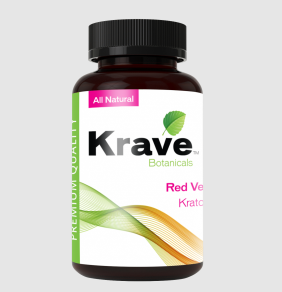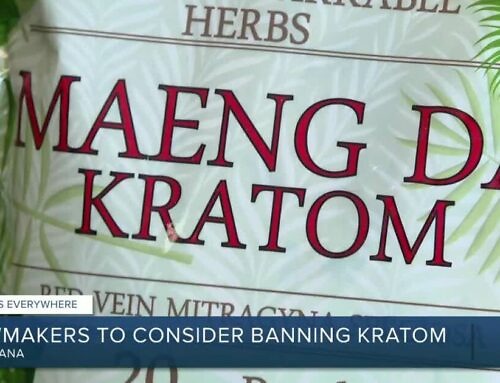Table of Contents
The Debate Over Kratom, An Opioid-Like Plant Legal In Massachusetts
If you’re a fan of herbal remedies, you’ve probably heard of kratom. But if you’re living in Massachusetts, you might be wondering, “Is kratom legal in Massachusetts?” Well, my curious friends, you’ve come to the right place! In this article, we’ll dive into the world of kratom and explore its legal status in the beautiful state of Massachusetts. So, grab a cup of tea, sit back, and let’s unravel the mystery of kratom’s legality!
Now, before we jump into the nitty-gritty, let me assure you that I’m not a lawyer. Nope, I’m just your trusty assistant here to provide you with some useful information. So, let’s get started! Kratom, also known as Mitragyna speciosa, is a tropical tree native to Southeast Asia. Its leaves have been used for centuries for their potential mood-boosting and pain-relieving effects. But when it comes to legalities, things can get a bit tricky. Each state in the U.S. has its own laws and regulations regarding kratom. So, what about Massachusetts? Is kratom legal in the Bay State? Well, my friends, let’s find out together!
Kratom is legal in Massachusetts. As of now, there are no laws or regulations specifically prohibiting the use, possession, or sale of kratom in the state. However, it’s important to note that kratom’s legal status can change, so it’s always a good idea to stay updated on any new developments. If you’re considering using kratom, it’s also recommended to research its potential benefits and risks, and consult with a healthcare professional for personalized advice.
Is Kratom Legal in Massachusetts?
Kratom, a tropical evergreen tree native to Southeast Asia, has gained popularity in recent years for its potential health benefits. However, its legal status varies from state to state in the United States. If you’re a resident of Massachusetts or planning to visit, you may be wondering about the legal status of kratom in the state. In this article, we’ll explore the legality of kratom in Massachusetts and provide you with the information you need to know.
The Legality of Kratom in Massachusetts
Massachusetts currently allows the use and possession of kratom. However, it’s important to note that regulations and laws regarding kratom can change over time, so it’s always a good idea to stay informed about the latest updates. While kratom is legal in Massachusetts, it’s crucial to use it responsibly and be aware of any potential risks or side effects associated with its use.
Kratom is derived from the leaves of the Mitragyna Speciosa tree and is often consumed in various forms, including powder, capsules, and extracts. It has been used for centuries in Southeast Asia for its stimulating and pain-relieving properties. In recent years, kratom has gained popularity in the United States as an alternative to traditional opioids and as a natural remedy for various conditions.
Benefits of Kratom
Kratom has been reported to have several potential benefits, although more research is needed to fully understand its effects. Some users claim that kratom can provide relief from chronic pain, improve mood and focus, and increase energy levels. Additionally, kratom has been used by some individuals as a natural alternative to managing opioid withdrawal symptoms. It’s important to note that individual experiences with kratom may vary, and it’s always best to consult with a healthcare professional before using any new substance.
Risks and Side Effects
While kratom may have potential benefits, it’s essential to be aware of the possible risks and side effects associated with its use. Some individuals may experience nausea, constipation, dizziness, or other adverse effects after consuming kratom. Additionally, there have been reports of kratom being adulterated with other substances, which can increase the risk of adverse reactions. It’s crucial to purchase kratom from reputable sources and practice responsible use to minimize potential risks.
Regulations and Guidelines
Although kratom is legal in Massachusetts, there are still regulations and guidelines in place to ensure the safety of consumers. The Massachusetts Department of Public Health advises individuals to only use kratom products that are pure and free from contaminants. They also recommend starting with a low dose and avoiding combining kratom with other substances, including alcohol or medications.
It’s important to note that the U.S. Food and Drug Administration (FDA) has not approved kratom for any medical use. As a result, kratom products cannot be marketed or sold as dietary supplements or for the treatment of any specific condition. If you choose to use kratom, it’s essential to do so responsibly and be aware of the potential risks.
Obtaining Kratom in Massachusetts
If you’re interested in trying kratom in Massachusetts, there are various ways to obtain it. Some specialty stores and herbal shops may carry kratom products, including powder or capsules. Additionally, online retailers offer a wide range of kratom products that can be delivered directly to your doorstep. When purchasing kratom, it’s crucial to choose a reputable vendor and carefully read product labels to ensure quality and purity.
Conclusion
In conclusion, kratom is legal in Massachusetts, allowing individuals to use and possess it for personal use. However, it’s crucial to stay informed about any changes in regulations and guidelines regarding kratom. As with any substance, it’s important to use kratom responsibly, be aware of potential risks and side effects, and consult with a healthcare professional if you have any concerns. Whether you’re considering trying kratom for its potential benefits or simply want to learn more about its legality, this article has provided you with valuable information about kratom in Massachusetts. Remember to prioritize your health and safety when using any new substance.
Key Takeaways: Is Kratom Legal In Massachusetts?
- Kratom is currently legal to buy, possess, and use in Massachusetts.
- However, it is important to stay updated on any changes in legislation, as kratom’s legal status can vary.
- Kratom is a natural herbal supplement derived from the leaves of the kratom tree.
- Many people use kratom for its potential benefits, such as pain relief and increased energy.
- While it is legal in Massachusetts, it is still important to use kratom responsibly and follow recommended dosages.
Frequently Asked Questions
What is Kratom?
Kratom is a tropical tree native to Southeast Asia, specifically Thailand, Malaysia, Indonesia, and Papua New Guinea. The leaves of the kratom tree contain compounds that have psychoactive properties and are often used for their stimulant and opioid-like effects.
This herbal supplement is commonly consumed by brewing the leaves into a tea, chewing the leaves, or taking it in powder or capsule form. Kratom has gained popularity in recent years as an alternative to traditional pain medications and as a recreational substance.
Is Kratom legal in Massachusetts?
As of now, kratom is legal to purchase and possess in the state of Massachusetts. However, it is important to note that kratom is not regulated by the U.S. Food and Drug Administration (FDA) and its legality can vary from state to state.
While Massachusetts currently allows the sale and possession of kratom, it is always a good idea to stay informed about any changes in legislation or regulations regarding kratom in your area.
Are there any age restrictions for purchasing kratom in Massachusetts?
Currently, there are no specific age restrictions for purchasing kratom in Massachusetts. However, it is always advisable to check with individual vendors or local authorities to ensure compliance with any age restrictions that may be in place.
It is worth noting that some states have implemented age restrictions on the sale of kratom, so it is important to stay informed about any changes in regulations that may affect the legal purchase of kratom in Massachusetts.
Can I travel with kratom in Massachusetts?
Yes, you can travel with kratom within the state of Massachusetts. Since kratom is legal to possess in the state, you should not encounter any issues while traveling with it. However, if you plan to travel outside of Massachusetts, it is crucial to familiarize yourself with the laws and regulations of the destination regarding kratom.
It is important to note that while kratom is legal in Massachusetts, it may be illegal or regulated in other states or countries. Therefore, it is always recommended to research the laws of your destination before traveling with kratom.
Can kratom be sold in Massachusetts?
Yes, kratom can be legally sold in Massachusetts. However, it is crucial for vendors to comply with any regulations or requirements set by local authorities. It is always advisable for vendors to stay updated on any changes in kratom legislation to ensure legal compliance.
It is important to note that the sale of kratom may be subject to certain restrictions or licensing requirements imposed by local jurisdictions. Vendors should also exercise caution and ensure they are not making any false claims about the benefits or effects of kratom when selling the product.
Final Summary: Is Kratom Legal In Massachusetts?
So, after diving into the topic of kratom legality in Massachusetts, what’s the verdict? Well, the situation is a bit murky, but let’s break it down. While kratom is not explicitly illegal in the state, it’s important to note that the FDA has not approved it for any medical use, and several cities and counties in Massachusetts have banned its sale and possession. This means that the legality of kratom can vary depending on where you are within the state.
If you’re thinking about using kratom in Massachusetts, it’s crucial to do your research and understand the specific regulations in your area. Keep in mind that laws can change, and it’s always a good idea to stay informed about any updates or local ordinances that may affect the legality of kratom. Remember, knowledge is power, and being aware of the legal landscape can help you make informed decisions.
While kratom has gained popularity for its potential benefits, it’s vital to prioritize your safety and well-being. If you’re considering using kratom, consult with a healthcare professional to ensure it’s appropriate for you and to discuss any potential risks or interactions with other medications you may be taking. Stay informed, stay curious, and make choices that align with your needs and values.










Leave A Comment